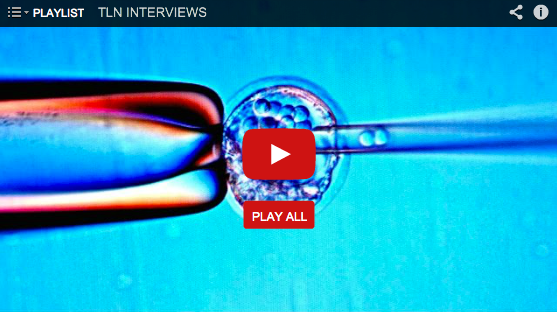Miami Herald, by Fred Tasker, ftasker@MiamiHerald.com
Stem cell therapy was originally used for the treatment of leukemias in the form of bone marrow transplant. Nearly 2 decades after this groundbreaking work, clinical trials initiated using bone marrow stem cells for treatment of heart patients. Bone marrow stem cells possess the ability to stimulate new blood vessel formation, a process called angiogenesis, which is essential in: a) accelerating healing after a heart attack; and b) in patients who have angina, stimulating new blood vessels to grow and take over the function of the clogged arteries that are causing the angina.
Initial work in this area involved administering stem cells from the bone marrow that were non-purified, directly into the heart muscle. Subsequently new techniques were developed so that open heart surgery was not needed. These techniques include the use of catheter-based delivery systems. Additionally, scientists found that one type of stem cell that is found in the bone marrow, called the mesenchymal stem cells, is actually more potent than bone marrow non-purified cells. Clinical trials have been performed with mesenchymal stem cells for heart failure. One of the major ones involved intravenous administration of “universal donor” cells. This article describes some of the patients that participated in Osiris’ 51 patient clinical trial.
“I believe in miracles, God — and my doctors,” said Edgar Irastorza, 33, the youngest of 51 patients at the luncheon.
Early results are promising, says Hare, director of UM’s Interdisciplinary Stem Cell Institute.
“We don’t know what the results will be, but things are going well. The fact that you’re here is testament to that,” he told the patients, united for the first time at a luncheon titled “Heart of a Pioneer” to celebrate their struggle.
Irastorza, a Miami property manager, said he died briefly on Oct. 6, 2008. A genetic defect gave him such a serious heart attack that his heart stopped for a few minutes. Doctors who revived him said half his heart was dead and warned him to prepare for a short, disabled life. They wanted to insert a defibrillator into his chest.
“I didn’t want that,” he said. “I didn’t want to give up sex and dancing.”
On March 3, 2010, UM doctors used a catheter inserted through a slit in his groin to inject millions of tiny stem cells into his damaged heart.
At the Friday luncheon, Irastorza presented to the crowd a five-minute video of his new self, doing an energetic, head-spinning break dance.
“I’m not completely back to normal, but, compared to before, it’s night and day,” he said.
Felix Morales, 80, a retired agriculture worker, had a heart attack 25 years ago and recently had become too easily fatigued to take care of the collards and peppers and the mamey and mango trees in his Miami backyard.
A year ago, he got one of the stem-cell treatments. “It took a while, but I feel good right now,” he said. “I have no words to express my gratitude.”
Evangeline Gordon, 40, a state probation officer from Miami, called 911 one October night in 2009, thinking she had a bad gas attack. To her shock, doctors told her a heart attack had damaged 70 percent of her heart muscle. They began discussing a heart transplant.
Instead, she volunteered for the UM program and got stem cells from a donor. Like most of the others, she doesn’t know if she got real stem cells or a placebo treatment used for comparison.
“I’m up and down,” she said Friday. “I still get angina and fatigue, but I don’t feel like I’m going down anymore.”

